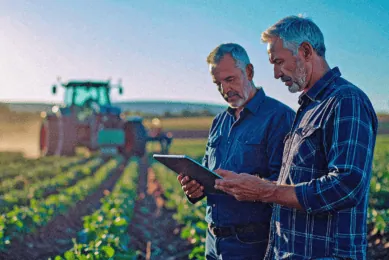AI in agriculture comes with substantial risks, warn researchers

A new risk analysis warns that the future use of artificial intelligence in agriculture comes with substantial potential risks for farms, farmers and food security that are poorly understood and under-appreciated.
The risk analysis was published in the journal Nature Machine Intelligence. First author of the paper is Dr Asaf Tzachor in the University of Cambridge’s Centre for the Study of Existential Risk (CSER). On the University of Cambridge website he said the idea of intelligent machines running farms is not science fiction. “Large companies are already pioneering the next generation of autonomous ag-bots and decision support systems that will replace humans in the field. But so far no one seems to have asked the question ‘are there any risks associated with a rapid deployment of agricultural AI?’” Dr Asaf Tzachor said.
Hackers
In their research, the authors raise the alarm about cyber-attackers potentially causing disruption to commercial farms using AI, by poisoning datasets or by shutting down sprayers, autonomous drones, and robotic harvesters. To guard against this they suggest that ‘white hat hackers’ help companies uncover any security failings during the development phase, so that systems can be safeguarded against real hackers.
In a scenario associated with accidental failure, the authors suggest that an AI system programmed only to deliver the best crop yield in the short term might ignore the environmental consequences of achieving this, leading to overuse of fertilisers, over-application of pesticides and soil erosion in the long term. Involving applied ecologists in the technology design process could ensure these scenarios are avoided.
Socioeconomic inequalities
Another problem mentioned by the researchers is socioeconomic inequalities that are currently entrenched in global agriculture. Although autonomous machines could improve the working conditions of farmers, these inequalities will remain. “Expert AI farming systems that don’t consider the complexities of labour inputs will ignore, and potentially sustain, the exploitation of disadvantaged communities,” Tzachor said.
Small-scale growers who cultivate the majority of farms worldwide and feed large swaths of the so-called Global South are likely to be excluded from AI-related benefits. Marginalisation, poor internet penetration rates, and the digital divide might prevent smallholders from using advanced technologies such as drones, sensors and self-driving combine harevsters, widening the gaps between commercial and subsistence farmers.
Join 17,000+ subscribers
Subscribe to our newsletter to stay updated about all the need-to-know content in the agricultural sector, two times a week.



